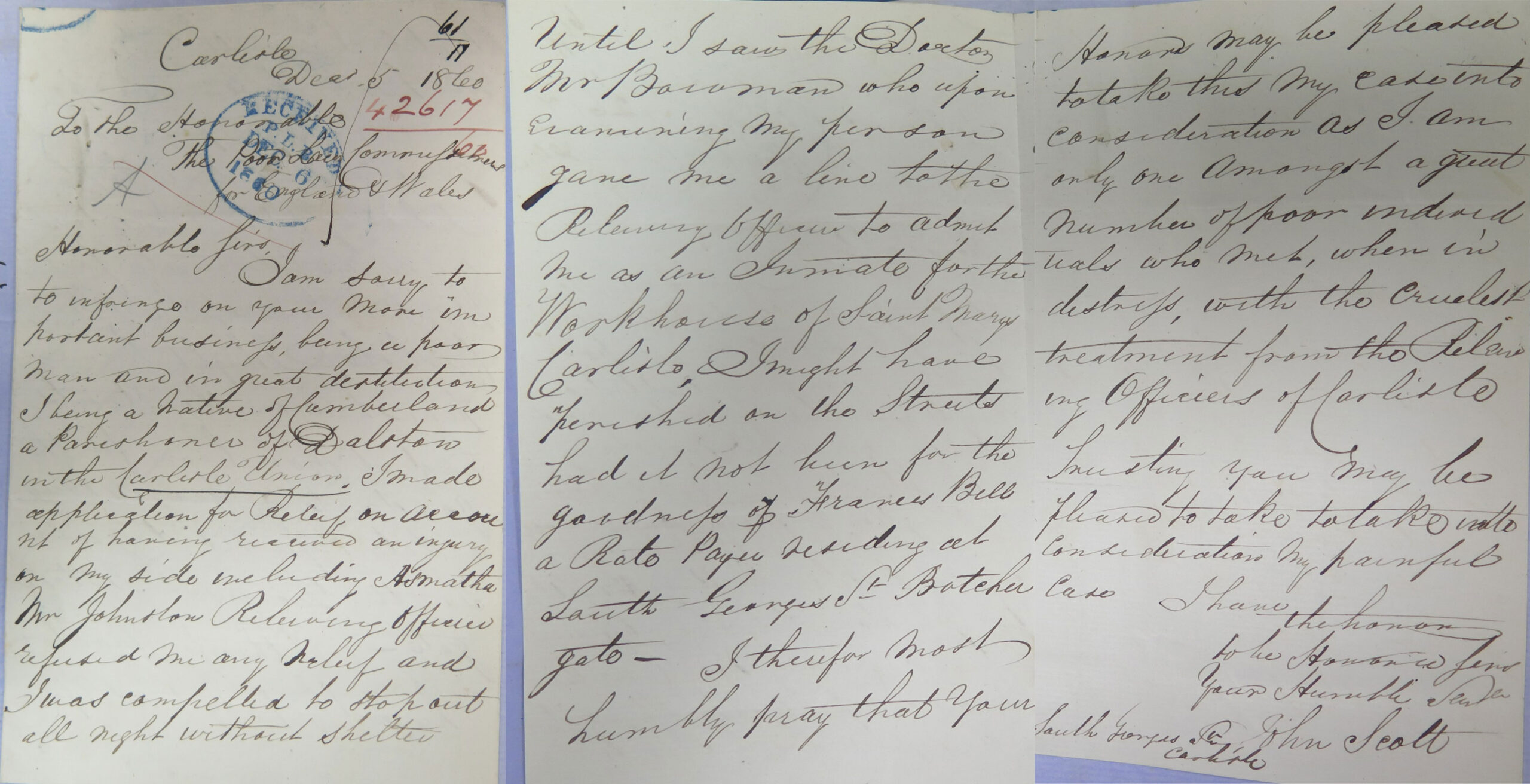
Catalogue Ref: MH12/1597, 42617/1860
Transcript
Carlisle Dec 5 1860 To the Honorable The Poor Law Commissioners for England & Wales
Honorable Sirs, I am sorry to to infringe on your more important business, being a poor man and in great destitution I being a Native of Cumberland a Parishoner of Dalston in the Carlisle Union. I made application for Releif on account of having received an injury on my side including Asmatha Mr Johnston Releiving Officier refused me any releif and I was compelled to stop out all night without shelter Until I saw the Doctor Mr Bowman who upon Examining my person gave me a line to the Releiving Officer to admit me as an Inmate for the Workhouse of Saint Marys Carlisle, I might have perished on the Streets had it not been for the goodness of Francis Bell, a Rate Payer residing at South Georges St. Botchergate_
I therefor most humbly pray that your Honors may be pleased to take this my case into consideration as I am only one Amongst a great number of poor individuals who met, when in distress, with the Cruelest treatment from the Releiving Officiers of Carlisle Trusting you may be pleased to take to take into consideration my painful case.
I have the honor to be Honored Sirs your Humble Serva. John Scott South Georges St. Carlisle
All letter questions:
- What is the letter asking for or discussing?
- What area of the poster is it exploring?
- What do you notice about the language of the letter? Is it formal, informal, desperate, well-written or poorly-written? Does this issue get resolved? How does it differ to how we write letters of complaint in today’s society?
- What might the response be from the Poor Law Commission?
- How does this letter challenge the perception of the poor in the 1837 poster?
Letter specific questions:
- What is the letter asking of the Poor Law Board?
- Why is he asking for relief?
- What is the role of Francis Bell?
- Who is he blaming for the bad treatment of the poor?
- Has this person accepted the treatment he has been given?
